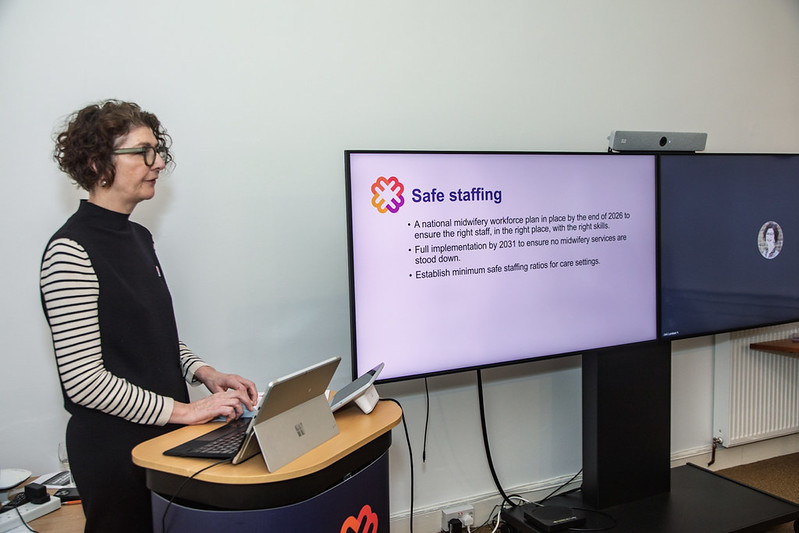The importance of research to drive improvements in maternity safety and the quality of care has been underlined with the publication of a strategic plan for research from England’s Chief Midwifery Officer (CMidO). It sets out plans for maternity and perinatal research and strengthening careers for under-represented disciplines, such as midwives over the next three years.
Published last Wednesday (17 May), the strategy aims to embed research in the NHS and in trusts to create a ‘research positive culture’. All healthcare staff should feel empowered and able to participate in clinical research says the strategy, but this requires a sustainable and supported research strategy to make it happen. The voices of services users and women must also be central to this, says the strategy.
“This is a major and positive step forward for midwifery research and for the safety of the women, babies and families we care for. Research pushes practice forward, saves lives and delivers better outcomes,” said Sara Webb the RCM’s Head of Midwifery, Information and Research Services. “We can all be researchers on however big or small a scale and this strategy promises to bring that vision nearer. It also recognises that this cannot happen without staff having the capacity and capability to incorporate research into their day-to-day activities.”
There are three overarching aims in the CMidO’s strategy. These are:
- NHS England maternity policy and programmes are informed by the highest quality evidence and the voices of service users to close the loop between evidence, policy, programmes, and frontline practice.
- NHS England maternity policy and programmes embed evaluation to inform and assess programme delivery improvements and impact.
- The contribution of midwives to research and the evidence base is visible and valued and supported by strengthening research capacity.
The RCM published its own four-year research and development strategy in 2020.This has a three-pronged central vision which includes promoting research, supporting RCM members to develop a stronger midwifery focused research base and embedding research within the profession and the systems supporting midwives. A key element of the strategy is its three goals of building research capacity within midwifery, strengthening research collaboration, and influencing and showcasing the importance of midwifery research.
“We now have a bold vision that has the capability to shift the ground significantly for midwifery research. We now need the funding, policies and systems to make it a reality for all midwives, to keep pushing the boundaries of practice and to make care better,” added Sara.
Read the full Chief Midwifery Officer for England’s strategic plan for research at NHS England » Chief Midwifery Officer for England’s strategic plan for research.
Read latest blog by Dr Sara Webb, MIDIRS, Head of Midwifery Information and Resource Services on the launch of the maternity strategy here.
Read the RCM’s Research and Development strategy at research-and-development-strategy-2021-2024.pdf (rcm.org.uk).
The RCM also has a research category in its annual awards. Read more about this and the awards at Categories – RCM Awards 2023.


